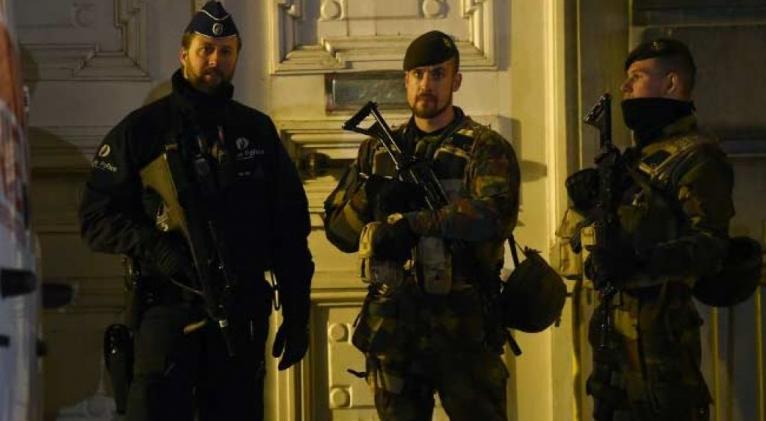Belgian Terrorism Raid Twitter Silence Surprises
especiales

What happened was that Belgians cheerfully if irreverently cooperated with a police request for a blackout on details of their operations.
The unusual show of cooperative behaviour seemed to fly in the face of the usual debates about free speech and media responsibility in such cases.
"It's easy to put out a message like that, but the probability of it being followed is pretty limited," Marc Lits, a professor at the Louvain journalism school in Belgium, told AFP.
"What was really stunning was that it largely functioned well."
Both traditional and social media had been abuzz for days after Belgium on Saturday raised the terror alert in Brussels to its highest level, warning of "serious and imminent" attacks similar to those that killed 130 people in Paris on November 13.
But when dozens of pictures of police raids started to appear on Twitter on Sunday night, the authorities swiftly circulated a request for radio silence.
"Police are asking the public not to report their movements on social media, please support & rt #BrusselsLockdown," Defence Minister Steven Vandeput tweeted.
Brussels police said it was "for security", adding: "Please respect radio silence on social media about the police operations underway in Brussels. Thank you."
Cat tweets
The #BrusselsLockdown hashtag quickly went viral in surreal fashion, with thousands of people tweeting pictures of their cats in various poses.
But more surprising was that the police request was widely heeded. not just on social media but also by TV channels and newspaper websites which had previously hungrily reported every development.
n fact, there had been widespread debate about whether or not it was right to cover every development on social media since the Paris attacks -- and before.
"A lot was learned from what happened in January," said blogger and social media expert Mateusz Kukulka.
After the two brothers behind the Charlie Hebdo attacks in January holed up in a printworks near Paris, a worker complained that French television and radio stations had put his life at risk by revealing that he was hiding in there at the same time.
The debate has been the same during other terror attacks, amid concerns that the perpetrators have used social media or live television to work out where security forces are deployed.
"Given this kind of precedent, which harmed not just the operation but also put a hostage's life in danger, it seems normal that the media took this decision," said Alain Gerlache, a journalist specialising in social media and former spokesman for ex-Belgian prime minister Guy Verhofstadt.
No censorship
Belgian French-language broadcaster RTBF denied there was any censorship, either overt or self-imposed.
"What we have to accept is a certain restraint, a little distance from events, but our reporters will continue to be at the scene to inform us," executive Jean-Pierre Jacquemin said. "Censorship doesn't exist in Belgium."
Belgian daily Le Soir received two calls in quick succession from Prime Minister Charles Michel's crisis cell asking them to stop giving "too precise information", editor Christian Berti explained on the paper's website.
Experts said Belgium's relatively uncompetitive media landscape and lack of 24-hour news channels had also helped.
"In Belgium, it's not the jungle you have in France," Kukulka said, noting that only one channel had live broadcasts on Sunday night despite the scale of the news.
But experts were more surprised by the cooperation from users of social media like Twitter, where free speech is often upheld as an inalienable right and any perceived attempts at censorship harshly opposed.
"There seems to have been some civic reflex," Marc Lits said.
Alain Gerlache added: "Compared to Paris there were no attacks or deaths... so even if tensions were high it was easier for both the public and the media to control their emotions."
"Also in Paris everything happened suddenly, whereas in Brussels it was a pre-planned action which gave the authorities time to communicate properly."
Brussels police even found time to reward the "lolcats" of the Internet -- with a virtual bowl of cat food on their Twitter feed on Monday.













Add new comment